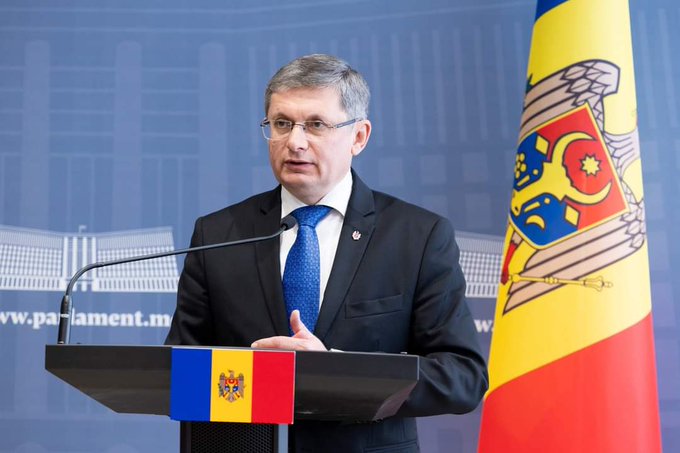The upcoming parliamentary election in Moldova, scheduled for 28 September, holds significant implications for the country’s future and the security of the European Union. A new government, aligned with pro-European Union ideals and led by the ruling Action and Solidarity Party (PAS) under President Maia Sandu, has the potential to advance Moldova’s aspirations for full EU membership by 2030. Conversely, challenges in forming a stable majority government or establishing a coalition among pro-Russian parties could result in severe political and economic instability.
The PAS is currently confronting a range of challenges, including disinformation, foreign interference, and hybrid threats. Anti-government campaigns orchestrated by pro-Russian parties are being conducted with Moscow’s support, as evidenced by the official visits of Igor Dodon, leader of the largest opposition party, to Russia.
Despite the PAS leading opinion polls, an organised anti-EU coalition is actively working to undermine the integrity of the upcoming elections. This effort employs various tactics, including electoral corruption and manipulation of information.
Recently, the Central Election Commission (CEC) of Moldova denied registration for the Victory Bloc, established by fugitive oligarch Ilan Șor in Moscow in April 2024. As a result, the three remaining pro-Russian parties may obstruct the formation of a pro-EU government, heightening the risk of destabilisation.
According to a press release from the CEC, 25 parties have been approved to participate in the parliamentary elections. In order to register, parties were required to submit information regarding their governing and executive bodies to the State Services Agency by 14 July. Out of 66 registered formations, only 25 fulfilled this requirement. Each party or bloc must present candidate lists consisting of 51 to 111 individuals, maintaining a gender balance of at least 40%. The electoral threshold is established at 5%.
The pro-Russian bloc
Recent opinion polls conducted by two reputable organisations indicate a leading position for PAS. Nonetheless, opposition parties utilise social media platforms to disseminate disinformation.
A poll conducted by iData from 14 to 23 June revealed that PAS is in the lead with 40.4% of the support. The opposition bloc, led by the Party of Socialists of the Republic of Moldova (PSRM) and former Moldovan President Igor Dodon, secured approximately 20% of the votes. The PSRM is a nationalist and socially conservative party which expresses anti-NATO and anti-EU sentiments, opposes LGBT rights, and supports Russia’s invasion of Ukraine.
Additionally, the “Alternativa” Bloc, established in 2025 by Chișinău Mayor Ion Ceban and 2024 presidential candidate Alexandr Stoianoglo, garnered 10.3% support, while the Party of Our (Partidul Nostru, PN), represented by 2024 presidential candidate Renato Usatîi, received 4.35%.
The most recent poll from the ATES Research Group, conducted between 28 June and 7 July, presents comparable findings. PAS continues to lead with 39.1% support, followed by the Bloc of Socialists and Communists, with 20-22% of the vote. The Alternativa Bloc shows 9.4% support, while the PN has nearly doubled its score to 7.7%.
Furthermore, it is important to consider the supporters of the Victory Bloc. Following its rejection by the Central Election Commission (CEC), its voters may shift their support towards Dodon’s bloc. This bloc includes the Heart of Moldova Republican Party (PRIM), led by former Gagauzia governor and 2024 presidential candidate Irina Vlah.
The initial iData poll indicated 15.5% support for the Victory Bloc. However, this figure decreased to 8.9% in the subsequent ATES Research Group poll conducted three weeks later.
Russia’s strategy
Russia is implementing a distinct strategy for the upcoming elections in Moldova, contrasting sharply with its approach during the recent Romanian parliamentary polls. In Romania, Moscow focused its support on the far-right and irredentist party, the Alliance for the Union of the Romanians (AUR), with the objective of facilitating the formation of an AUR-led coalition government. Similar to other far-right movements in Europe, AUR aimed to capitalise on internal divisions within the National Liberal Party (PNL), seeking to influence President Nicușor Dan to grant a mandate to its leader. This strategy was motivated by rising public support for AUR, alongside economic challenges, corruption issues, and a prevailing crisis within the democratic parties.
In Moldova, however, Russia is employing a different tactic. It is extending support to multiple parties with the goal of preventing the pro-European PAS from establishing a government. This approach could lead to increased destabilisation within the country. It may pave the way for a pro-Russian coalition to gain power. The election of additional candidates from pro-Russian parties diminishes the likelihood of the PAS achieving a majority government, thereby influencing the political landscape in Moldova.
PAS expands the pro-EU bloc
In response to the current challenges, Igor Grosu, the leader of the PAS party and Speaker of the Parliamenthas announced the party’s openness to collaboration with entities that support European integration.
On 18 July, the Platforma DA party announced its decision to exit the pro-EU Împreună bloc, indicating that its representatives would instead run on the PAS lists. Party leader Dinu Plîngau articulated that this move was motivated by the intention to consolidate pro-European votes, acknowledging that the party did not wish to take unnecessary risks for minimal gains.
EU firm support of Moldovan democracy
As the upcoming elections draw near, Russia has escalated violations of Moldova’s airspace, utilising missiles and drones, as reported by the Defence Ministry on 17 July.
In response, the European Union issued a statement on 18 July condemning these hybrid attacks on EU member states and partner countries, including Moldova. Brussels characterised these actions as part of the Kremlin’s ongoing strategy to undermine security and democracy in the region.
The EU has committed to exposing and countering such activities in close collaboration with its partners, “particularly Ukraine and the Republic of Moldova”.
